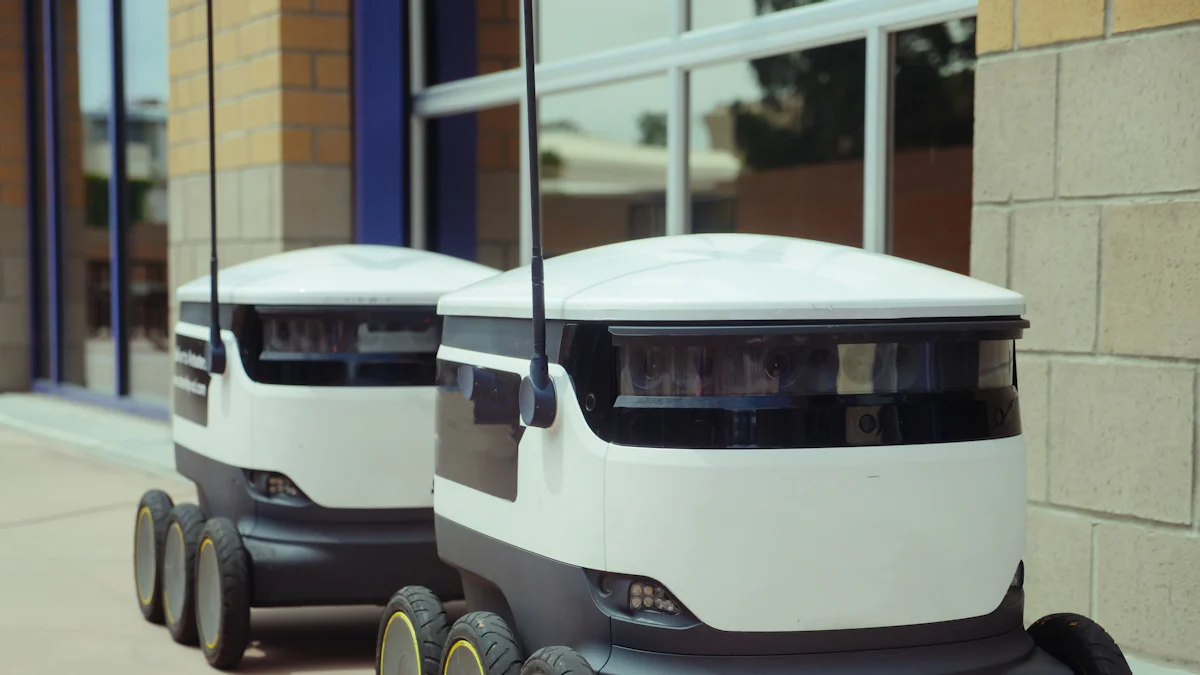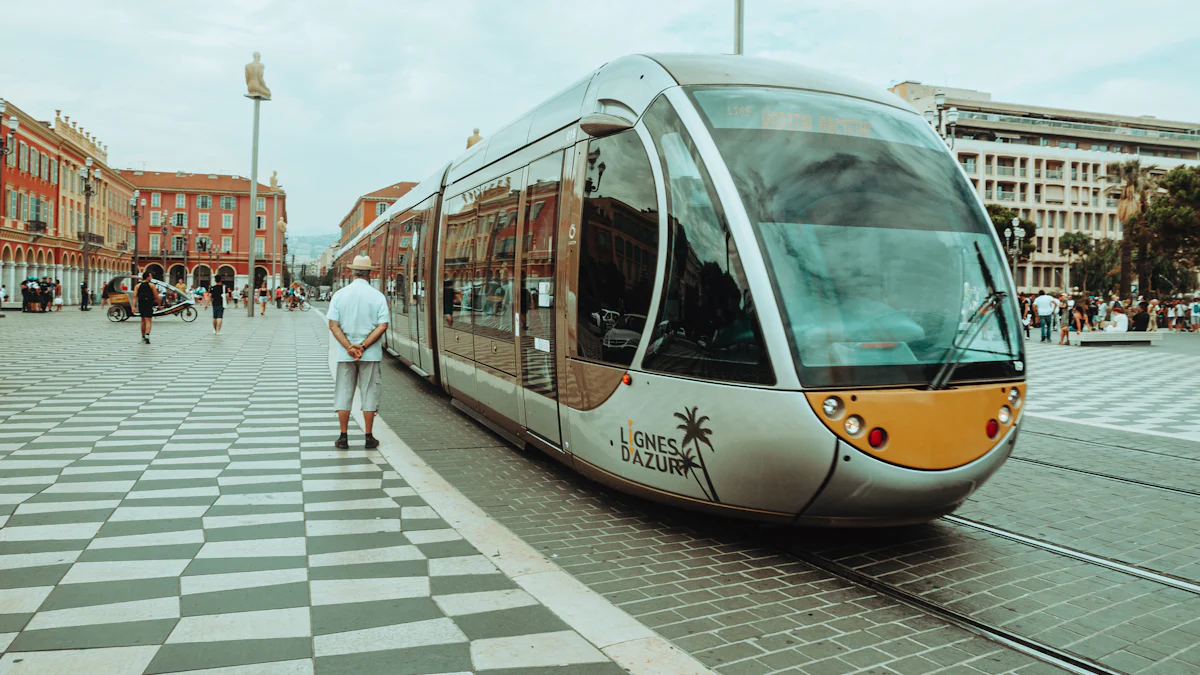Efficiency Redefined: Indigenous Intelligent Transport Solutions

Intelligent transport systems revolutionize urban mobility, optimizing efficiency and enhancing passenger experiences. Embracing indigenous solutions is pivotal for sustainable progress, aligning technology with local needs. This blog delves into the realm of ITS, emphasizing the power of homegrown innovations in transforming transportation landscapes.
Intelligent Transport Systems

Intelligent Transport Systems (ITS) represent a groundbreaking approach to urban mobility, leveraging cutting-edge technologies to streamline transportation networks and enhance overall efficiency. By integrating smart solutions into the fabric of cities, ITS paves the way for a more sustainable and interconnected future.
What is ITS?
Definition and Components
At its core, Intelligent Transport Systems encompass a diverse array of technologies and strategies aimed at optimizing transportation operations. These systems consist of sophisticated tools that enable real-time data collection, analysis, and decision-making to improve traffic flow and commuter experiences.
Key Technologies Used
Real-Time Data Analytics: Harnessing the power of data analytics allows for dynamic insights into traffic patterns, enabling authorities to make informed decisions promptly.
Automated Traffic Management: Implementing automated systems for traffic control minimizes congestion and enhances road safety through efficient management protocols.
How ITS Enhances Efficiency
Real-Time Information Delivery
By providing commuters with up-to-the-minute information on travel times, route changes, and potential delays, Intelligent Transport Systems empower individuals to make informed decisions about their journeys. This real-time data delivery ensures smoother transitions and optimized travel experiences for all.
Traffic Management and Safety
Through advanced traffic management algorithms and safety protocols, ITS mitigates risks on the road while maximizing the efficiency of transportation networks. By prioritizing safety measures and optimizing traffic flow, these systems create a seamless urban mobility ecosystem.
Benefits of Indigenous Solutions
Cost-Effectiveness
Local Development and Maintenance
Investing in local development and maintenance of intelligent transport systems fosters economic growth and sustainability within communities. By nurturing homegrown solutions, cities can create job opportunities, stimulate innovation, and ensure the longevity of their transportation infrastructure.
Reduced Dependency on Foreign Technology
Minimizing reliance on foreign technology bolsters national security and resilience against external disruptions. Embracing indigenous solutions empowers cities to take control of their technological advancements, safeguarding sensitive data and reducing vulnerabilities to cyber threats.
Customization for Local Needs
Addressing Specific Urban Challenges
Tailoring intelligent transport systems to address specific urban challenges enhances operational efficiency and user satisfaction. By customizing solutions based on local requirements, cities can optimize resource allocation, minimize congestion, and improve overall mobility experiences for residents.
Cultural and Social Considerations
Integrating cultural and social considerations into the design of intelligent transport systems promotes inclusivity and community engagement. By acknowledging diverse perspectives and values, cities can create transportation networks that reflect the unique identities and preferences of their inhabitants.
Real-World Applications

Case Studies
Smart City Initiatives in Singapore
Government's Smart Nation program: Singapore has spearheaded the adoption of innovative measures through its Smart Nation program, focusing on harnessing cutting-edge technologies and research to enhance urban living experiences.
Successful smart city prioritization: By prioritizing the development of smart city initiatives, Singapore has set a global benchmark for sustainable urban planning and efficient resource management.
Rio Operations Center in Rio de Janeiro
Improvement in management efficiency and emergency response: The Rio Operations Center in Rio de Janeiro has significantly improved operational efficiency and emergency response capabilities, leading to a 30% reduction in emergency response times.
Successful city digital implementation: Through the successful implementation of digital solutions, Rio de Janeiro has demonstrated the transformative power of technology in optimizing public services and enhancing overall safety standards.
Future Prospects
Potential Developments
The future holds immense potential for further advancements in intelligent transport systems, with emerging technologies poised to revolutionize urban mobility on a global scale. As cities continue to embrace innovation and sustainability, the integration of smart solutions is set to redefine transportation landscapes for generations to come.
Recommendations for Adoption
Cities worldwide are encouraged to adopt indigenous intelligent transport solutions to address pressing urban challenges and enhance commuter experiences. By leveraging homegrown innovations and embracing local expertise, municipalities can create resilient transportation networks that cater to the unique needs of their communities.
Efficient urban mobility relies on cutting-edge technologies like Intelligent Transport Systems (ITS) to enhance transportation networks and commuter experiences.
Embracing indigenous ITS solutions fosters economic growth, sustainability, and national resilience by customizing transport systems to local needs.
Readers are encouraged to explore the benefits of indigenous ITS for their cities, optimizing efficiency and creating inclusive transportation ecosystems.
See Also
Enhancing Logistics Efficiency: Redefining JUSDA's Optimization
Exploring Future Tech in Logistics: Breakthrough Insights
Revealing AI Integration in Future Supply Chains: Insights
Discover Your Supply Chain's Efficiency: Act Now!
Transforming Supply Chain Innovation: Logistics Revolution Impact
